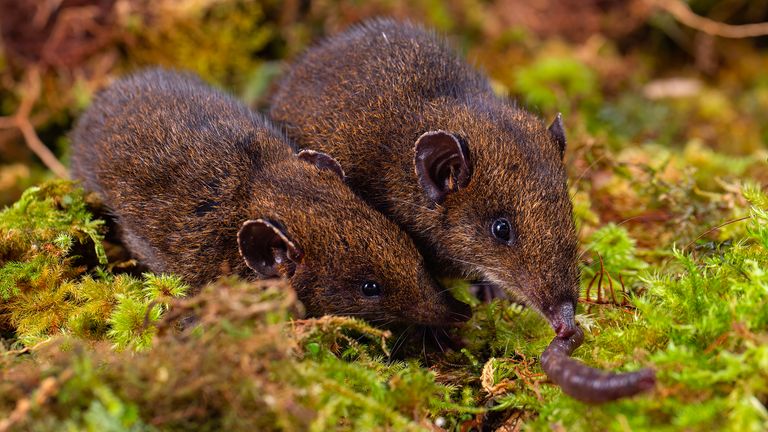Five new species of hedgehogs have been discovered by scientists in South East Asia.
They are all types of spineless soft-furred hedgehogs, which are furry rather than spiky.
Two of the species found by researchers are entirely new and the other three are subspecies upgraded to the level of species.
The team, from the Smithsonian National Museum of Natural History, used DNA to identify different genetic lineages, which it later confirmed as distinct species by comparing them with museum specimens.
One of the entirely new species, the Hylomys vorax, is found in a tropical rainforest on the slopes of Mount Leuser in Northern Sumatra.
They are around 12cm (4.7in) long, have dark brown fur, very narrow snouts, and completely black tails.
H. macarong hedgehogs, the other entirely new species, also have dark brown fur – but are larger than Hylomys vorax hedgehogs, at around 14cm (5.5in) in length.
They are found in tropical rainforests in South Vietnam and were named after the Vietnamese word for vampire (Ma cà rồng) because males of the species possess long, fang-like incisors.
The research team said more studies would be required to decipher what purpose the fangs serve.
Lead author Dr Arlo Hinckley said the findings “highlight that even in well-studied animal groups like mammals, there are still discoveries waiting to be made”.
The other three new species – which were formerly considered to be subspecies of Hylomys suillus but have now been elevated to species in their own right – are named H. dorsalis, H. Maxi, and H. peguensis.
H. dorsalis hedgehogs are found in the mountains of Northern Borneo while H. maxi hedgehogs are found in the mountains of Sumatra and the Malay Peninsula.
Both are around 14cm long, but H. dorsalis have a conspicuous dark strike that begins on their heads and reaches the middle of their bodies.
The H. peguensis species is smaller, typically measuring around 13cm (5in) in length, and has slightly more yellow fur than the other species.
It is found in numerous countries in South East Asia, especially Thailand, Laos, and Myanmar.
Each of the five species are active during the day and night and like all other species of hedgehogs, are omnivores – probably eating a mixture of insects and other invertebrates as well as some fruits, as and when they can.
Dr Hinckley said: “Based on field observations and the lifestyles of their close relatives, these hedgehogs likely nest in hollows and take cover while foraging among tree roots, fallen logs, rocks, grassy areas, undergrowth, and leaf litter.
“But, because they are so understudied, we are limited to speculate about the details of their natural history.”
